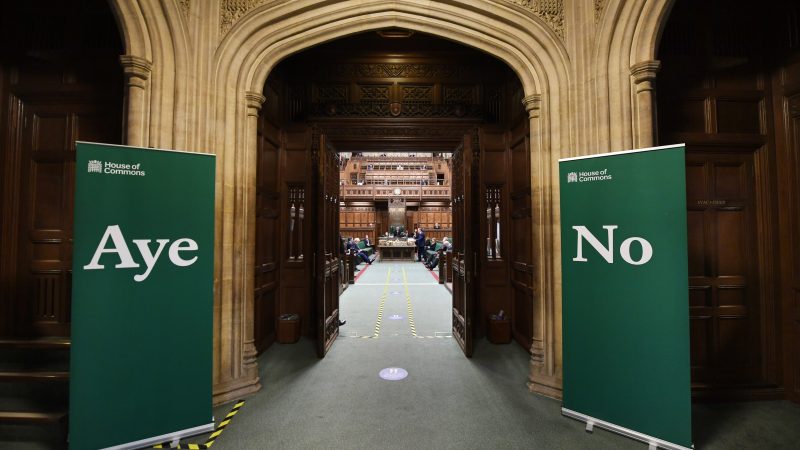
The government has rejected Labour’s ‘Amazon amendment’ clause to the finance bill by a 105-vote majority as MPs considered the legislation this evening.
The amendment, which was voted down by 365 votes to 260, would have prevented the largest tech giants from utilising the ‘super deduction’, as well as other big firms in the UK that do not support workers’ rights and the living wage.
The super deduction was announced by Rishi Sunak in the Budget. It will allow companies to use qualifying investment to reduce their tax bills by up to 130%. The amendment from Labour would have added conditions to eligibility for the subsidy.
“Our amendment number 79 would explicitly prevent the biggest tech firms from taking advantage of the top Chancellor’s tax break, as well as other big firms that do not support workers rights and the living wage,” Labour’s James Murray said.
The conditions were that companies adhere to the International Labour Organisation convention on the right to organise and to collective bargaining, be a certified living wage employer and not be liable to the digital tax service.
“The government should be improving the lives of thousands of workers who have helped so many people with deliveries throughout the pandemic, not giving a huge tax break to their bosses,” the shadow Treasury minister added.
“We need a fairer tax system, and we do investment in jobs and growth. And this government’s bill, the finance bill, fails on both fronts.” He urged Tory backbenchers to back Labour’s amendments and “take a stand against the Amazon tax policy”.
As well as putting the super-deduction into law, the finance bill will introduce the freezing of the personal income allowance announced by Sunak during the Budget in March, and the government’s delayed increase to corporation tax.
Labour forced a vote seeking to remove clause five, pertaining to the basic rate limit and personal allowance, but the Commons voted for the clause today by 356 votes to 224 as the government instructed its MPs to back the freeze.
“It tells you all you need to know about this Chancellor’s priorities that families will feel the impact of the government’s choices, years before businesses face an increase in corporation tax,” Murray told parliament this evening.
He added: “And at the very same time, some of the biggest firms in this country are offered a tax break that the chancellor himself has boasted represents the biggest tax cuts in modern British history.”
Labour also tabled new clause 23, which was rejected by 358 votes to 269. It would have required the Chancellor to review the equality impact of the Act, and to bring an impact assessment report to parliament within six months of its passing.
“We want the government to be transparent about the effect their changes will have on people’s lives,” Murray said. “The question of how changes impact on the people of this country should always be the government’s overriding concern when introducing changes to the tax system.”
Murray argued ahead of the debate today that the bill should have focused on “supporting families in all their many forms, on securing jobs and on backing struggling businesses” but said it instead “takes a hammer blow to family finances”.
He criticised the move to give tech giants a “whopping tax break”, describing the super deduction as a “£25bn boon”, and argued large business would be “the big winner” with small and medium-sized companies benefitting only marginally.
The super deduction will allow companies to reduce their tax bills by up to 25p for every £1 they invest in plant and machinery, according to the Treasury. Sunak said he hopes that the 130% deduction will boost business investment by £20bn a year.
TaxWatch recently published analysis suggesting that companies such as Amazon could use the super deduction to “entirely wipe out” their UK tax bill, which is already low as the company’s European operations are based in Luxembourg.
According to the research from the campaign group, the large multinational organisation reported £102m pre-tax profits in 2019. In the same year, it spent £67m on machinery, £80m on office equipment and £15m on computer equipment.
Today’s debate was the first of two days of committee stage consideration of the legislation. The bill is being considered by a ‘committee of the whole House’, which means that all MPs take part, instead of a smaller committee.




More from LabourList
Reeves bets on patience over populism
‘Energy efficiency changes must work for older private renters’
‘Labour’s creative destruction dilemma’